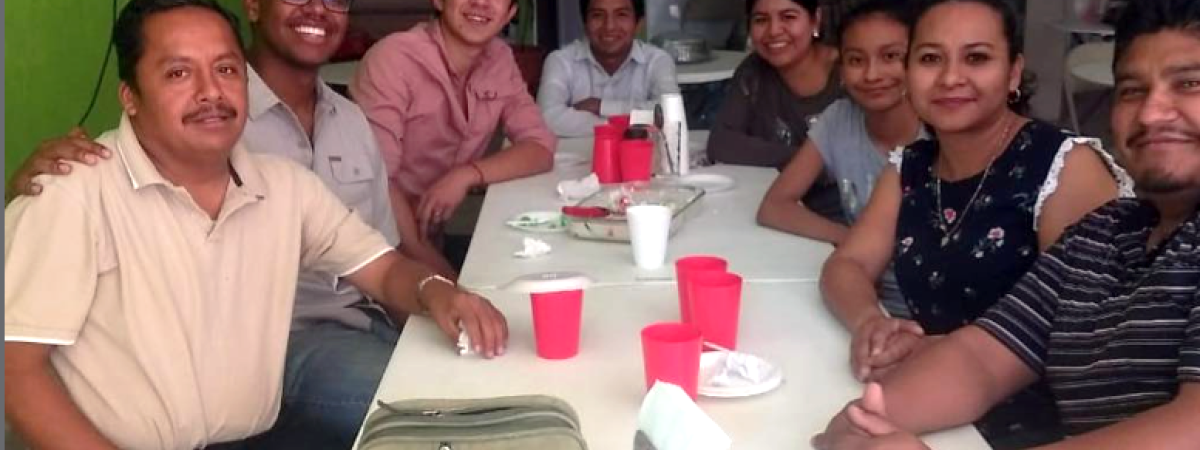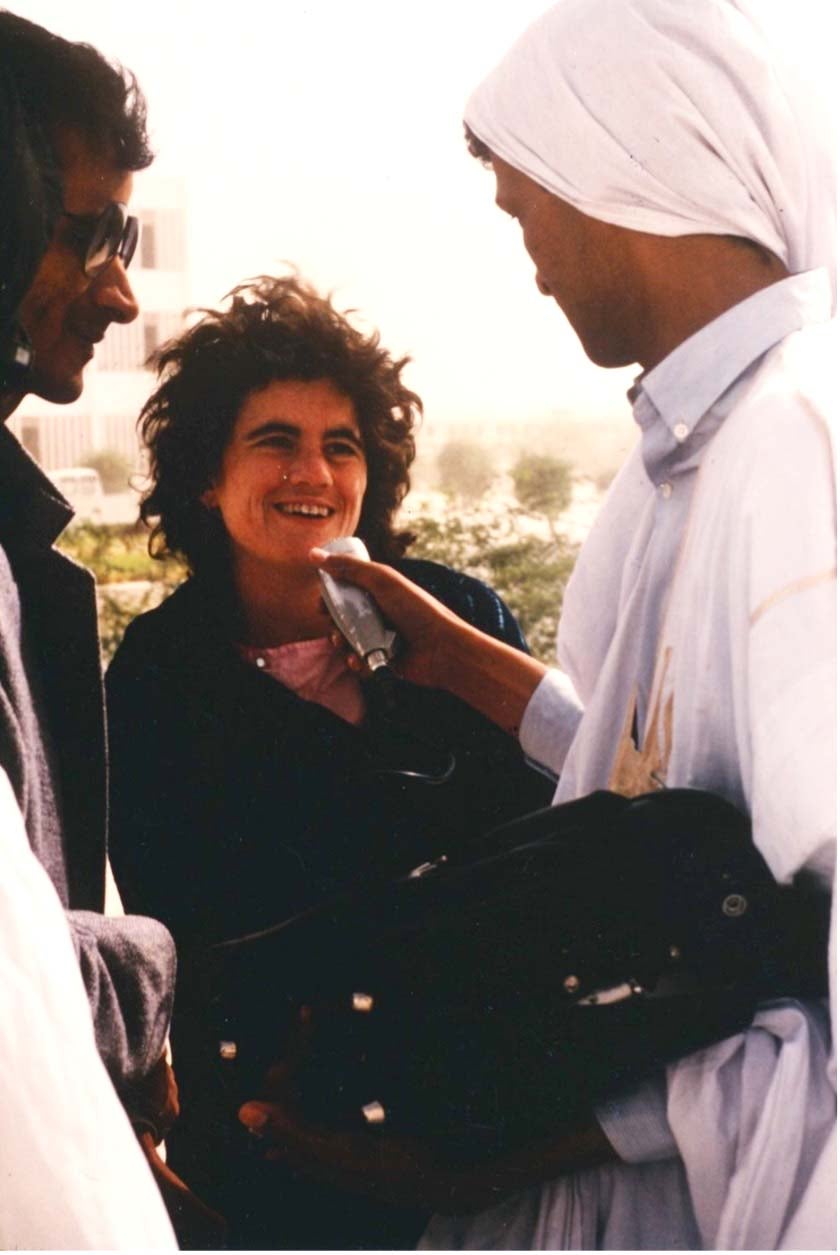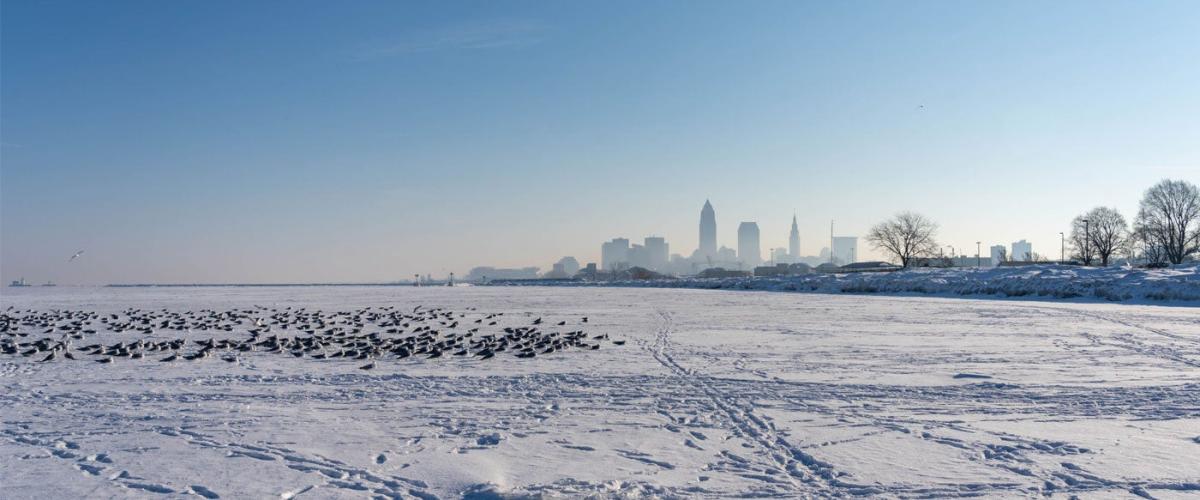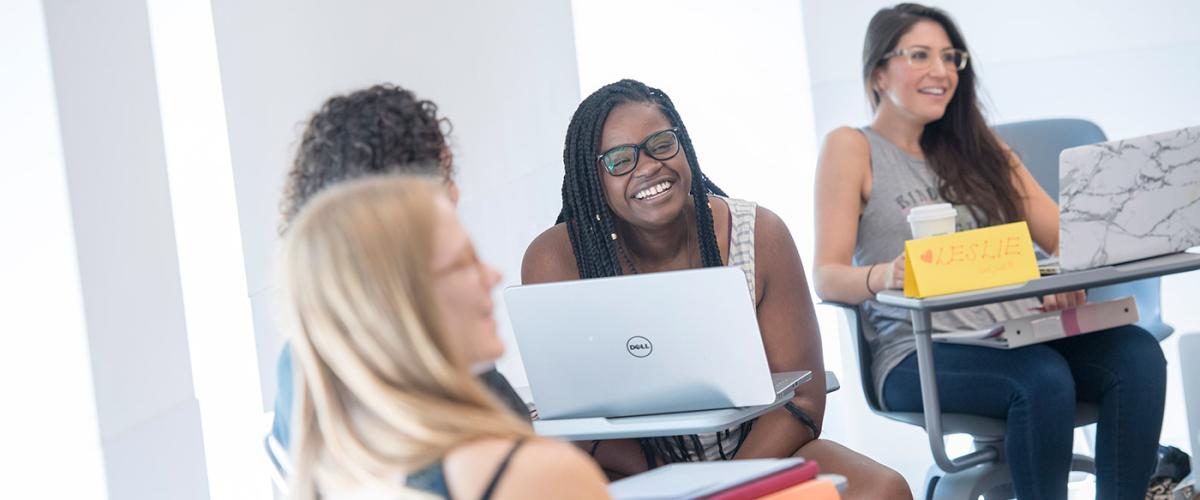Every year, Peace Corps Week commemorates March 1, 1961—the day President John F. Kennedy established the Peace Corps. The annual celebration honors how the agency fosters connections and contributes to meaningful change in the United States and around the world. The 2024 Peace Corps Week is being celebrated Feb. 25 to March 2.
In honor of the week, and the Mandel School's partnership with the Peace Corps, we talked to two Returned Peace Corps Volunteers (RPCVs)—Nicholas “Moses” Ngong, MSW/MNO student, and Nancy Rolock, the Henry L. Zucker Professor in Social Work Practice.
Describe your Peace Corps experience.
Ngong: I volunteered in south-central Mexico in a state called Puebla from 2018 to 2020. My site was in a UNESCO World Heritage zone called La Reserva de la Biosfera Tehuacan-Cuicatlan (Tehuacan-Cuicatlan Biosphere Reserve).
Rolock: This year (2024) marks the 40th anniversary of my departure from the U.S. to my Peace Corps post. I served as a Peace Corps Volunteer (PCV) from 1984 through 1986. I was stationed in N’Beika, a small town in northern Mauritania, officially the Islamic Republic of Mauritania (RIM).
What were some of the most impactful experiences you had during your time in the Peace Corps?
Ngong: I had too many impactful experiences to count. Attending countless rodeos, getting to know the incredibly kind, generous people of Mexico, and, of course, drinking Mezcal! There were also more challenging parts of the experience, like being a Black man in a country where most people believe Americans are all white, and learning to live in an environment without cell service or running water. It was a humbling and rewarding opportunity.
Rolock: My time as a PCV taught me about unconditional love. I arrived in N’Beika not able to speak the local language (Hassanyian, a dialect of Arabic). Yet, my Mauritanian family took me in, taught me the language, and accepted me as part of their family, despite limited knowledge of me or my background, and initially without a shared language.
As a white person growing up in the Midwest, with a large family and community, I grew up with a strong sense of belonging and acceptance. Living in N’Beika taught me about what it was like to be an outsider. Aside from our shared humanity and openness to others, my Mauritanian family and I had very little in common. Yet, we found ways to laugh, we accepted each other for who we were, and over a two-year period, we built strong bonds.
A decade after leaving N’Beika (in 1995), I returned with my husband. He was able to meet my Mauritanian family and experience the community that took me in as a young adult and helped form who I am today.
How do you think your service with the Peace Corps has influenced your work/studies?
Ngong: Peace Corps immersed me in an entirely different level of community and pace of life. Regular people came together to do things we expect professionals to do here, like preparing school meals or even building playgrounds. At the Mandel School, I am interested in the kind of community-building work that creates a culture where we rely on (and collaborate with!) our neighbors in ways that transform neighborhoods.
Rolock: I studied photojournalism prior to leaving for the Peace Corps. My experience as a PCV shifted my career interests. Upon returning from the Peace Corps, I knew I wanted to be a social worker, doing something where I could give back to the community. Initially I worked in refugee resettlement, where I worked with newcomers to the U.S. It was a perfect way to re-enter life in America, as much of what seemed ‘normal’ to me before living in Mauritania, now felt foreign. I enjoyed the opportunity to learn about new places (the refugees’ homeland) and help them navigate and become comfortable in their new home.






